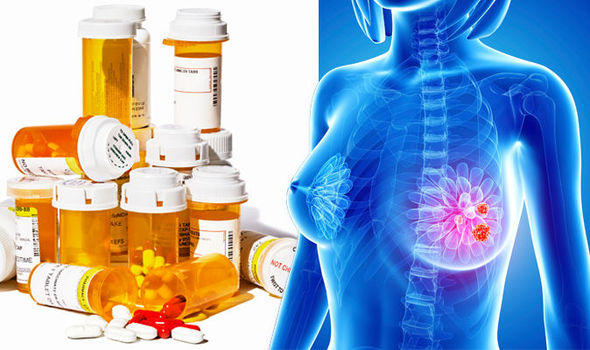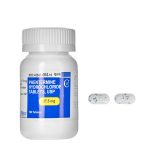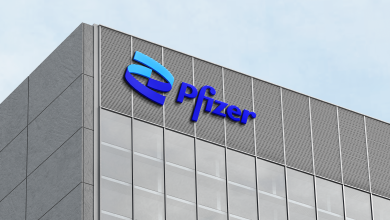Can Medications Cause Breast Cancer?

Breast cancer is the most common invasive cancer in women and the second leading cause of cancer death in women after lung cancer. About 1 in 8 U.S. women (about 13%) will develop invasive breast cancer over the course of her lifetime. In 2021, an estimated 281,550 new cases of invasive breast cancer are expected to be diagnosed in women in the U.S., along with 49,290 new cases of non-invasive (in situ) breast cancer.
The first symptoms of breast cancer usually appear as an area of thickened tissue in the breast or a lump in the breast or armpit.
Other symptoms include:
- pain in the armpits or breast that does not change with the monthly cycle
- pitting or redness of the skin of the breast, similar to the surface of an orange
- a rash around or on one of the nipples
- discharge from a nipple, possibly containing blood
- a sunken or inverted nipple
- a change in the size or shape of the breast
- peeling, flaking, or scaling of the skin on the breast or nipple
Most breast lumps are not cancerous. However, women should visit a doctor for an examination if they notice a lump on the breast.
Can medications cause breast cancer?
Can Medications Cause Breast Cancer
Yes, there is evidence to suggest that certain medications may increase the risk of breast cancer in some women. However, the relationship between medication use and breast cancer risk is complex and not fully understood.
Some medications that have been linked to an increased risk of breast cancer include:
1. Hormone replacement therapy (HRT): HRT is a treatment used to relieve symptoms of menopause, such as hot flashes and vaginal dryness. However, long-term use of HRT has been linked to an increased risk of breast cancer.
2. Oral contraceptives: Birth control pills contain synthetic hormones that prevent pregnancy by stopping ovulation. Studies have found that women who use oral contraceptives may have a slightly increased risk of breast cancer, particularly if they have used them for a long time.
3. Certain antidepressants: Some antidepressants, such as selective serotonin reuptake inhibitors (SSRIs), have been linked to an increased risk of breast cancer.
4. Immunosuppressive medications: Immunosuppressive medications are used to treat autoimmune disorders and prevent the rejection of transplanted organs. These medications have been linked to an increased risk of breast cancer, particularly in women who have had a transplant.
5. Chemotherapy and radiation therapy: While these treatments are used to treat breast cancer, they can also increase the risk of developing new cancer in the same breast or the other breast.
However, it is important to note that not all women who take these medications will develop breast cancer, and the risk may be influenced by factors such as age, family history, and other lifestyle factors. Additionally, the risks and benefits of taking these medications should be carefully considered by women in consultation with their healthcare providers. The detection of drug-cancer associations not only influences clinical and public health practice but may also provide insights into mechanisms of carcinogenesis.
How do I reduce my cancer risk?
There is a lot of good news about breast cancer these days. Treatments keep getting better, and we know more than ever about ways to prevent the disease. These eight simple steps can help lower the risk of breast cancer. Not everyone applies to every woman, but together they can have a big impact.
Keep Weight in Check: it’s easy to tune out because it gets said so often, but maintaining a healthy weight is an important goal for everyone. Being overweight can increase the risk of many different cancers, including breast cancer, especially after menopause.
Be Physically Active: exercise is as close to a silver bullet for good health as there is, and women who are physically active for at least 30 minutes a day have a lower risk of breast cancer. Regular exercise is also one of the best ways to help keep weight in check.
Eat Your Fruits & Vegetables – and Avoid Too Much Alcohol: a healthy diet can help lower the risk of breast cancer. Try to eat a lot of fruits and vegetables and keep alcohol at moderate levels or lower (a drink a day or under). While moderate drinking can be good for the heart in older adults, even low levels of intake can increase the risk of breast cancer. If you don’t drink, don’t feel you need to start. If you drink moderately, there’s likely no reason to stop. But, if you drink more, you should cut down or quit.
Don Not Smoke: Smokers and non-smokers alike know how unhealthy smoking is. On top of lowering the quality of life and increasing the risk of heart disease, stroke, and at least 15 cancers including breast cancer, it also causes smelly breath, bad teeth, and wrinkles. Now that’s motivation to stay smoke-free or work to get smoke-free.
Breastfeed, If Possible: Breastfeeding for a total of one year or more (combined for all children) lowers the risk of breast cancer. It also has great health benefits for the child.
Avoid Birth Control Pills, Particularly After Age 35 or If You Smoke: pills have both risks and benefits. The younger a woman is, the lower the risks are. While women are taking birth control pills, they have a slightly increased risk of breast cancer. This risk goes away quickly, though, after stopping the pill. The risk of stroke and heart attack is also increased while on the pill particularly if a woman smokes. However, long-term use can also have important benefits, like lowering the risk of ovarian cancer, colon cancer and uterine cancer not to mention unwanted pregnancy so there’s also a lot in its favor. If you’re very concerned about breast cancer, avoiding birth control pills is one option to lower risk.
Avoid Post-Menopausal Hormones: post-menopausal hormones shouldn’t be taken long term to prevent chronic diseases, like osteoporosis and heart disease. Studies show they have a mixed effect on health, increasing the risk of some diseases and lowering the risk of others, and both estrogen only hormones and estrogen-plus-progestin hormones increase the risk of breast cancer. If women do take post-menopausal hormones, it should be for the shortest time possible. The best person to talk to about the risks and benefits of post-menopausal hormones is your doctor.
Tamoxifen and Raloxifene for Women at High Risk: although not commonly thought of as a “healthy behavior,” taking the prescription drugs tamoxifen and raloxifene can significantly lower the risk of breast cancer in woman at high risk of the disease. Approved by the FDA for breast cancer prevention, these powerful drugs can have side effects, so they aren’t right for everyone. If you think you’re at high risk, talk to your doctor to see if tamoxifen or raloxifene may be right for you.
Find Out Your Family History: women with a strong family history of cancer can take special steps to protect themselves, so it’s important for women to know their family history. You may be at high risk of breast cancer if you have a mother or sister who developed breast or ovarian cancer (especially at an early age) or if you have multiple family members (including males) who developed breast, ovarian or prostate cancer. A doctor or genetic counselor can help you understand your family history of the disease.
Don’t Forget Screening: despite some controversy, studies show that breast cancer screening with mammography saves lives. It doesn’t help prevent cancer, but it can help find cancer early when it’s most treatable. For most women, regular mammograms can begin at age 40, but specific recommendations vary by age and risk. You Can Find More Information On: Anti Cancer Medications





